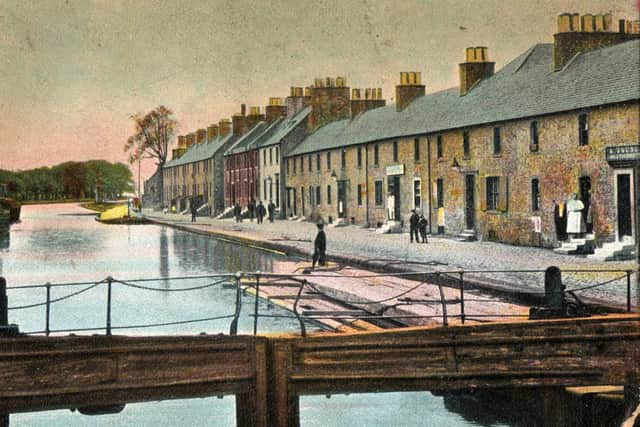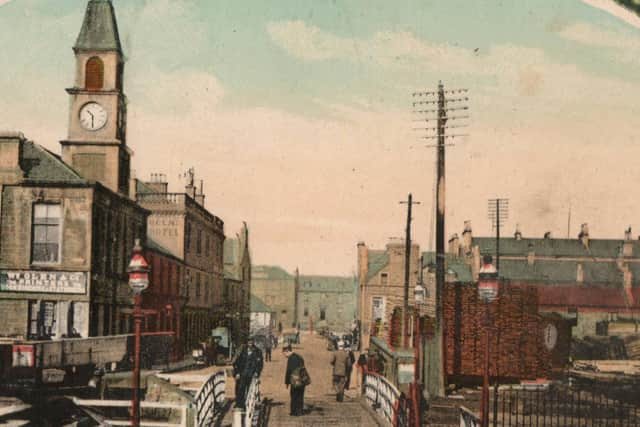Looking back with Ian Scott - Celebrating the coming of age of Grangemouth


It is a date worth celebrating because it marked the coming of age of Grangemouth and prepared the way for the massive developments in the years since. For the previous 100 years, since Sir Lawrence Dundas of West Kerse dug the first spade of earth to begin the construction of the Great Canal, he and his successors had overseen the growth of the community from nothing to a prosperous port.
By 1870 its population was around 2,500. The land on which the expansion developed was their property and though many businesses emerged and hundreds of families came to settle, the Dundas dynasty still called all the shots and everything of significance for the people including housing, schools and churches depended on their patronage.
Advertisement
Hide AdAdvertisement
Hide AdMost of that early growth was centred on the canal in what became the ‘Old Town’ but by the middle years of the 19th century the population began to spill over the canal to the east and new streets, houses and public buildings appeared in Charing Cross and along the Bo’ness Road. It has to be said that the ruling family demanded high specifications in all the buildings along with wide streets and gardens. In many ways they were well ahead of their time pointing the way to the garden cities of the later years.


But the very idea of a large and important community depending on the whim of one family had fallen out of favour. The democratic spirit that had swept across the land from the 1820s had seen other places including Falkirk gain the right to elect a council to make the decisions that effected the population. It was far from perfect but it was a beginning.
Now the pressure grew for something similar to happen in Grangemouth though it was many years before change came. Eventually, in 1862, Parliament passed the so called ‘Lindsay Act’ which allowed communities to test the will of the people and if the result was positive adopt the Act and in 1872 that is what happened. At first there were a small group of men called Commissioners elected, with John Selby McKay as Chief Magistrate. Eleven years later the council as we know it was created and Andrew McKay, the first of 22 Provosts, took the chair.
To celebrate the 150th anniversary plans are afoot to hold a series of monthly events in the coming year including talks, exhibitions and walks. These will start in a few weeks time on the afternoon of 26th January at 2pm when I will give a talk in Grangemouth Library called ‘The Dundas family and the Birth of Grangemouth’.
Advertisement
Hide AdAdvertisement
Hide AdThis will be followed each month by another speaker with a different topic charting the growth of the town. These will inevitably concentrate on heritage but the group promoting the celebrations including the Heritage Centre, Council and History Society are keen to see other events like school competitions, musical and sporting events. If you have any ideas then please get in touch. You can contact me on ianqscott@blueyonder,co.uk
Times are tough but remembering the achievements of the past might inspire the movers and shakers of today to bring better days in the future.
Comment Guidelines
National World encourages reader discussion on our stories. User feedback, insights and back-and-forth exchanges add a rich layer of context to reporting. Please review our Community Guidelines before commenting.